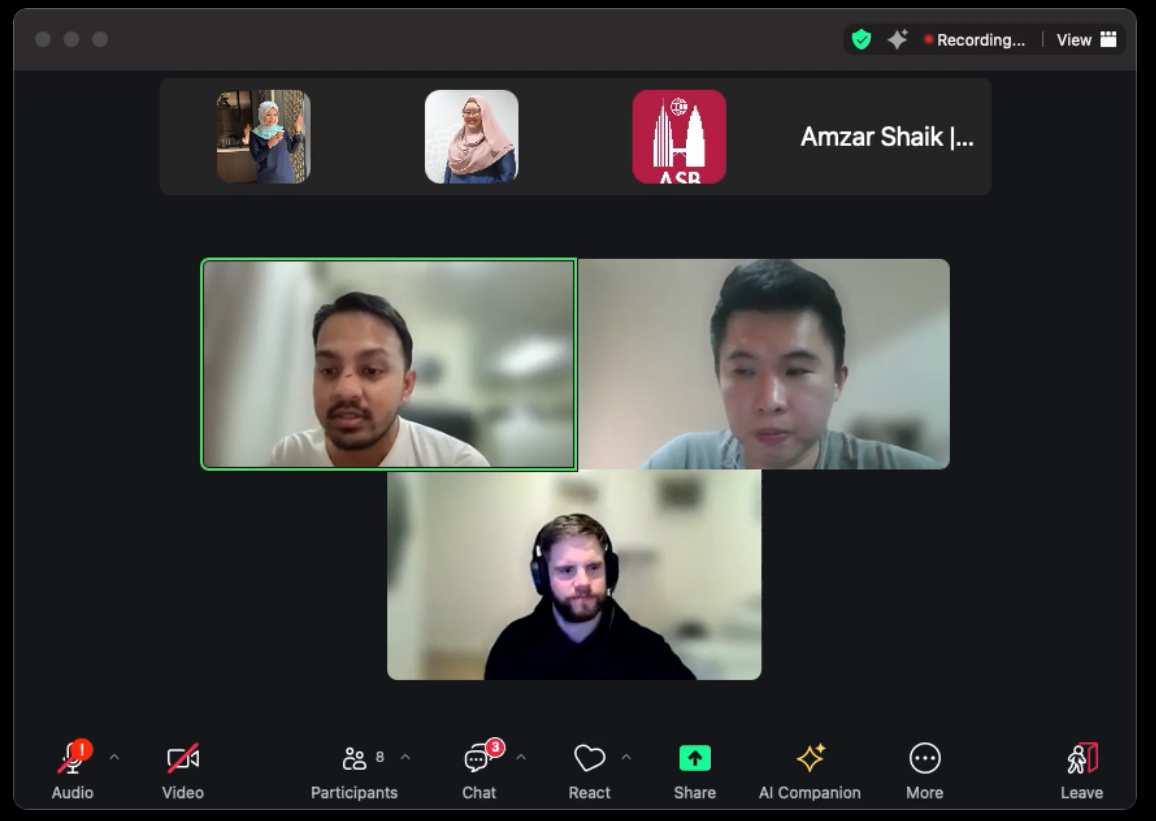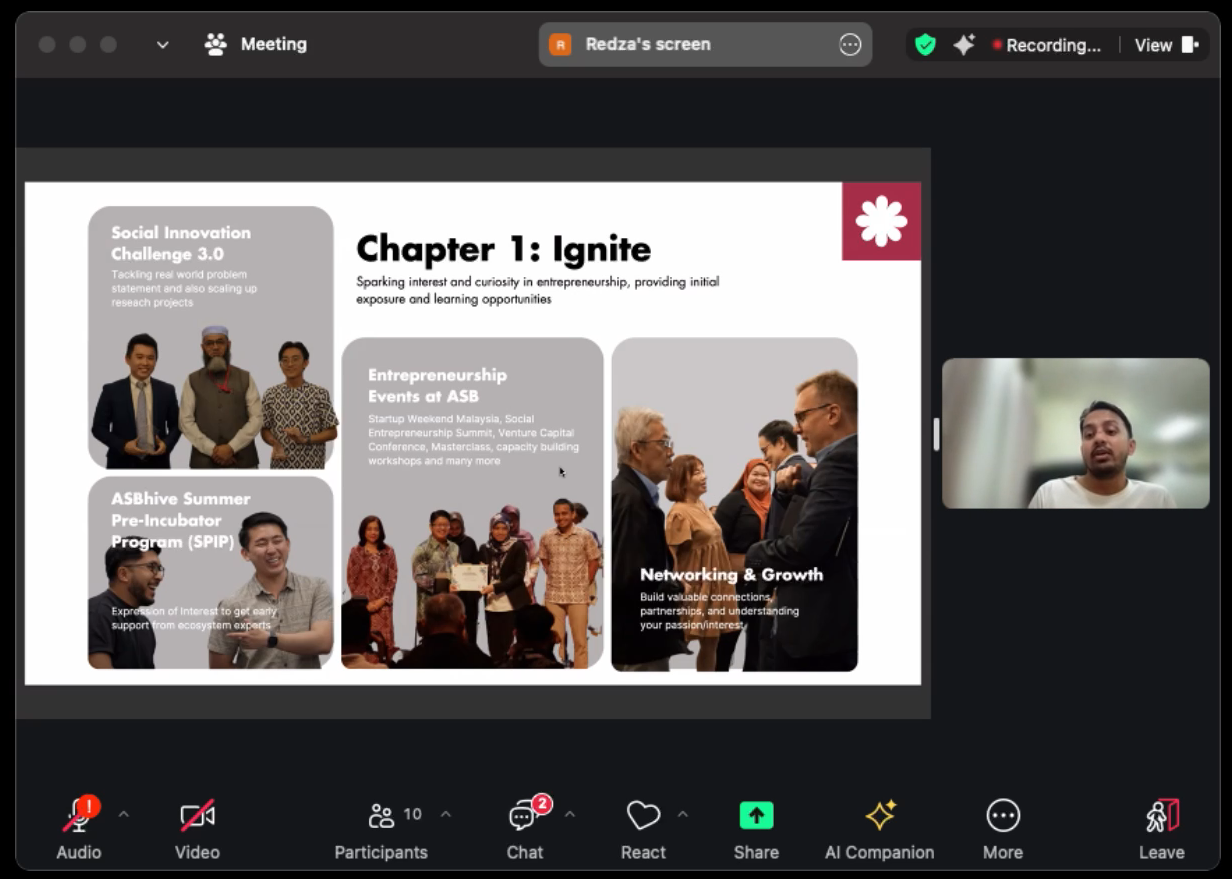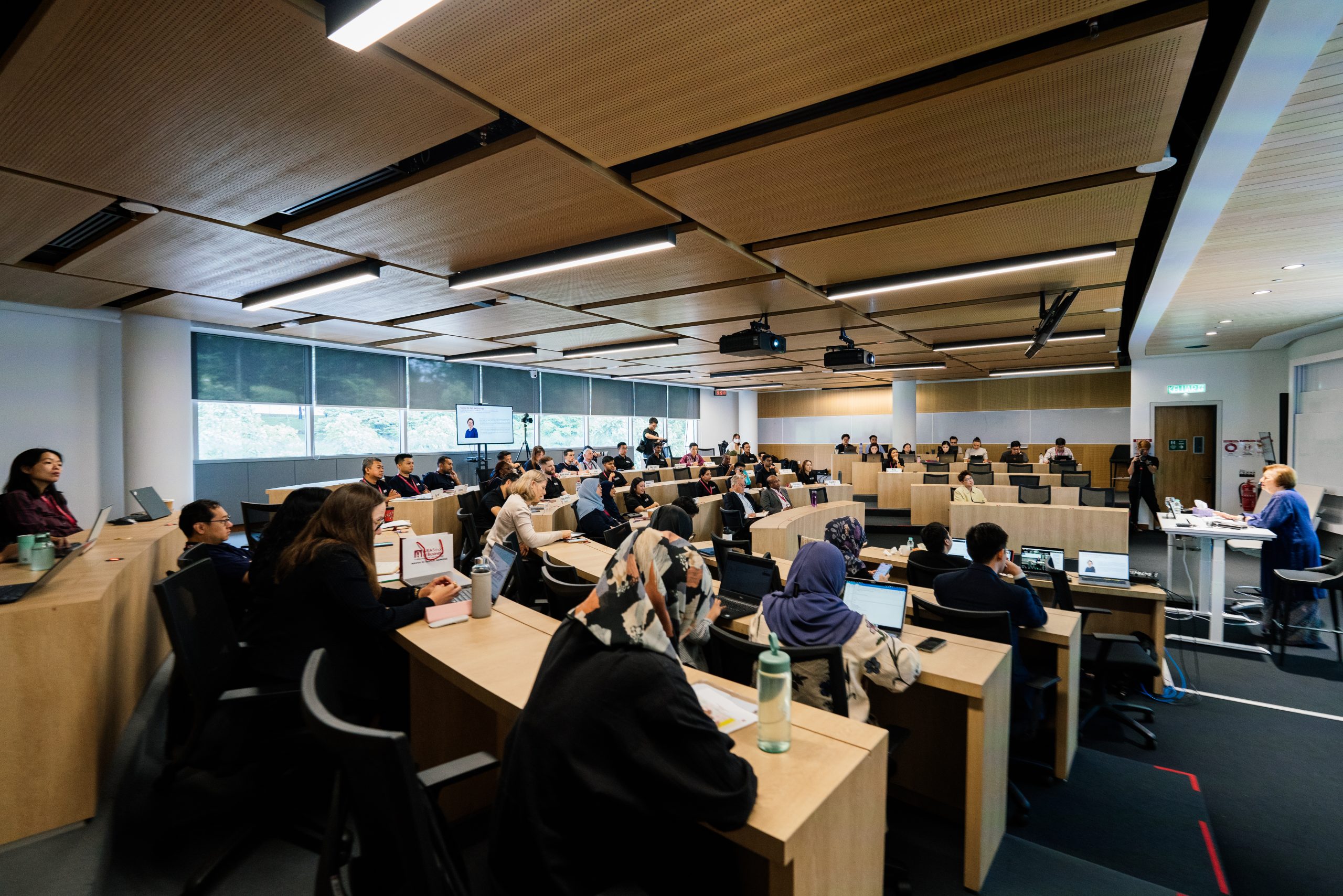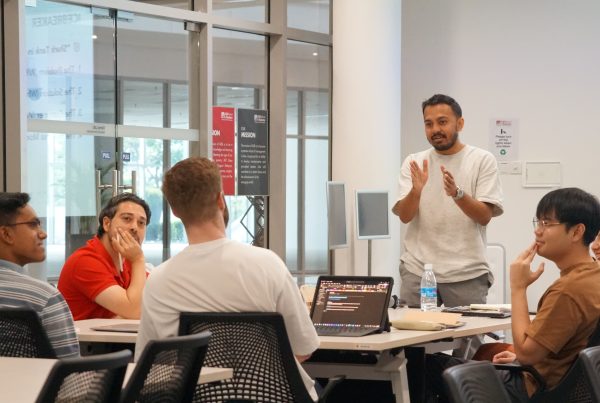
In today’s rapidly evolving startup ecosystem, the ability to seize opportunities, network effectively, and proactively engage with industry leaders is paramount. At the heart of this dynamic environment, institutions play a crucial role in not only providing access to these opportunities but also encouraging students to take the initiative in their entrepreneurial journeys.
At the Asia School of Business (ASB), we pride ourselves on offering an unparalleled blend of academic rigor and practical experience. ASBhive our dedicated hub, is designed to connect MBA students and the Start-up community with the networks and resources needed to succeed. With our strong industry ties, access to global thought leaders and Faculty, and a curriculum that emphasizes real-world application, ASB is the best place for aspiring entrepreneurs to turn their ambitions into reality.

Recent ASB Graduate See Wei Jie (MBA Class of 2024) shared his insights on his journey of taking entrepreneurship course while doing the MBA program during an Admit Mixer Zoom Session moderated by Redza Shahid from the Innovation and Entrepreneurship Center (IEC).
Highlights on Wei Jie’s Key Takeaways:
- Social Innovation Challenges: He joined the program without a specific direction, driven by a general interest in entrepreneurship. His strategy was to seize opportunities to explore, network, and learn, regardless of the outcome.
- Balancing MBA and Entrepreneurship: Wei Jie learned the importance of prioritization. He balanced academics and startup opportunities by focusing on essential academic requirements while dedicating time outside of the classroom to entrepreneurial ventures.
- Stakeholder Management: Understanding stakeholders’ needs and balancing their expectations was key. He emphasized the need to set clear priorities and allocate time and resources effectively.
- Lessons from Entrepreneurial Programs: He learned that understanding customers’ needs and the human element in entrepreneurship is critical. He remarked: “resourcefulness is more crucial than resources”
- Challenges in Entrepreneurship: Wei Jie faced difficulties in achieving product-market fit and finding the right team members. He learned not to assume customer needs and stressed the importance of engaging with relevant stakeholders. Also finding a complementary and trustworthy team is vital for startup success.
- Importance of Startup Events: He highlighted the significance of attending startup events for networking and finding team members.
The Importance of Networking and Exposure
One of the key insights highlighted was the importance of actively participating in startup events and connecting with industry professionals. As shared by Redza, IEC organized and hosted various start-up-related events at ASB. We also connect to many industry partners and have access to various events and programs. These events serve as a vital platform for students to gain exposure, learn from seasoned entrepreneurs, and build networks that can propel their ventures forward. For instance, in July, the IEC sponsored tickets for five lucky students to attend the prestigious Tech in Asia Conference.
Wei Jie emphasized that while the opportunities are abundant, it is up to the students to step forward and engage with these resources.
Institutional Support: A Two-Way Street
At IEC we recognize the importance of facilitating student access to external opportunities. Through ASBhive, our ecosystem connects students with experts and offers guidance on startup ideas. Our mission is to support aspiring entrepreneurs in every way possible.
“However, this support is most effective when students themselves take the initiative. It’s about creating a symbiotic relationship where both the institution and the students are actively involved in the process” – Wei Jie
The Power of Proactivity
In the competitive world of startups, the ability to take initiative can make all the difference. Institutions can provide a supportive framework, but it is the students who must drive their own success by actively engaging with the resources available to them.
Wei Jie took the lead in reaching out for specific resources and opportunities. His initiative not only resulted in valuable connections but also set a precedent for how students can maximize the support available to them.
This serves as a reminder that while institutions like ours are here to provide resources, the true catalyst for success lies in the hands of the students themselves. By taking the initiative—whether it’s seeking advice, requesting resources, or attending events—entrepreneurs can unlock a wealth of opportunities that might otherwise remain untapped.
As we continue to foster a culture of innovation and entrepreneurship, we encourage all students and aspiring entrepreneurs to follow in the footsteps of those like Wei Jie. “Don’t wait for opportunities to come to you—seek them out, ask for what you need, and take full advantage of the support that is available”.
Your journey in the startup ecosystem begins with the first step of initiative.



